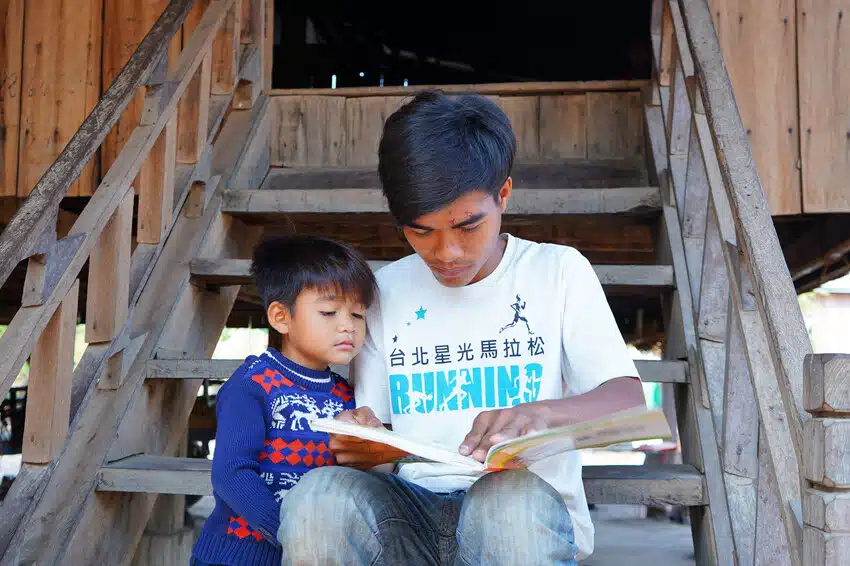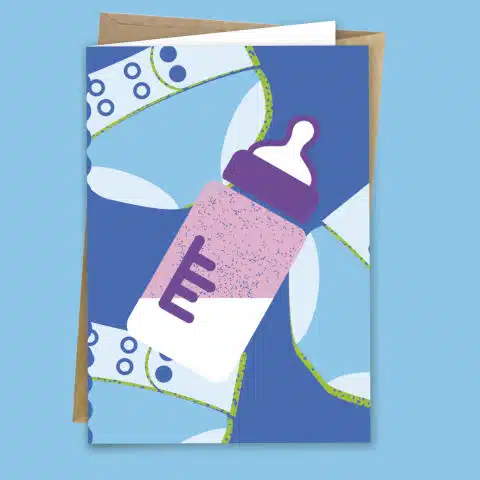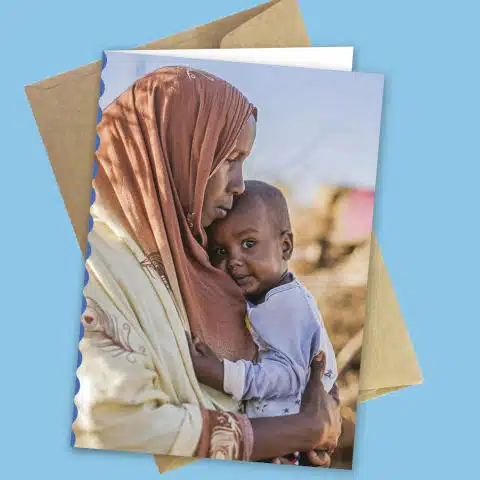We work with communities to make sure all children can thrive.
Every parent wants to give their child the very best start to life. But thousands of mothers and fathers all over the world don’t get that chance. They don’t always have access to the tools, resources and information they need to give their babies all they need to survive and thrive. That’s where we come in.
We work with local governments and partners to support mothers and fathers to raise healthy, happy babies. We provide nutrition counselling that includes breastfeeding support, advice on starting home food gardens and food hygiene for infants. We provide information about the milestones children should be reaching for healthy development, and how parents can protect and support their children with education and play to get there. And we work to make sure all families can access clean water, sanitation and hygiene.
After a child is born, I visit the mother and share my knowledge with her at home … so far I’ve supported 63 women.- Khin Khin, Plan International community health worker.
How gender affects children’s development
All children need nutrition, care and support to grow and thrive. But in areas where gender inequality is rampant, girls can face a range of barriers and challenges that can affect their health and development.
In some contexts, boys tend to be favoured, prioritised and valued more than girls. Girls are often the first to be pulled from school before their male siblings to tend to domestic duties.
Gender inequality can also play out in a father’s role, when social norms discourage them from taking an active role in caring for and raising their children.
This is why we work to break down gender inequality in early childhood development by challenging gender norms, encouraging both parents to share the responsibility of caring for their children, and supporting fathers to be emotionally and practically engaged in their child’s upbringing.

Photo: Pen, 23, reads to his four-year-old son every day. © Plan International
Health centre brings maternal healthcare to indigenous community
Opened in February 2023, the health centre, located in a remote and forested area of Stung Treng’s Siem Pang district, will improve access to primary healthcare services for nearly 20,000 marginalised, indigenous people, especially women and girls.
“I am very pleased that the new centre is so accessible, especially to the women in my community” says 24 year old Maly. When Maly went into labour with her first child, she had to endure a terrifying journey to reach the district health centre.
“I was scared that I would deliver my baby without any medical assistance while I was on my way to the hospital. It was such a long distance, and it was raining. I was lucky I made it to the hospital,” says Maly.
Sen Pisey, the director of the new centre, explains the challenges that people previously had to reach the nearest major medical facility, 35 km away.
“The road is often damaged, especially during the rainy season, and people need to use ferries to cross rivers. Some pregnant women chose to take their own vehicles to get to the centre. This is not only time consuming, but also dangerous.”
“Most of the children (in the area) have not been vaccinated. Some of the members of the community get treatment from traditional healers, who provide low-quality health services at a high cost. The most common illnesses we will treat are diarrhoea, acute respiratory infections, malaria, dengue fever, typhoid fever and malnutrition.”
Plan International are also supporting the Provincial Health Department to provide training to health centre staff and midwives, with a focus on improving nutrition and reducing child mortality.
Photo: Maly, 24, with her three-year-old daughter. © Plan International



